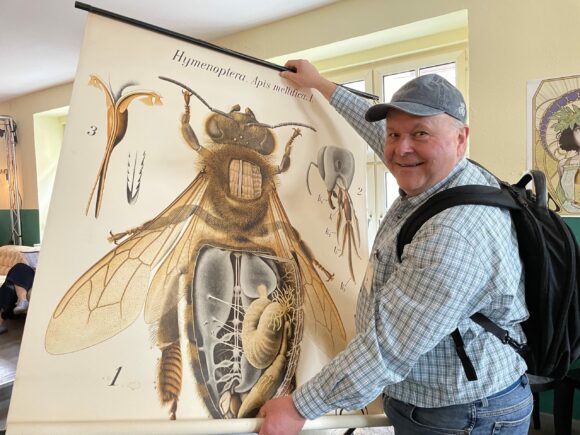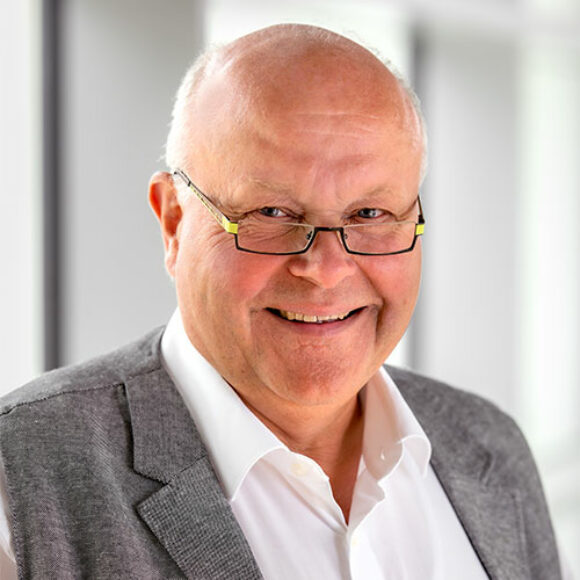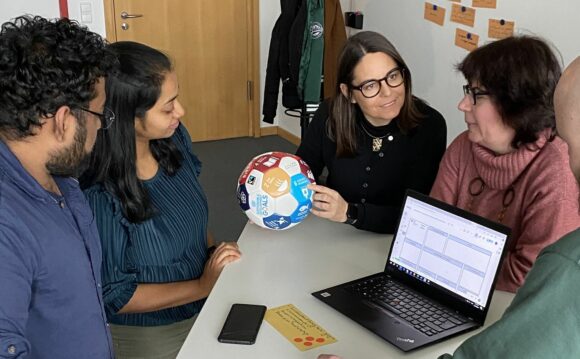Hof University of Applied Sciences wants to help Bavarian companies place their products and services in the market environment of the emerging “sponge city” or “sponge region” projects. The sponge city idea is about taking various measures to better deal with weather extremes. For example, while numerous solutions already exist to ensure that urban neighborhoods and municipal properties are better protected from the effects of heavy rainfall and drought. However, the diversity of challenges requires ever new, better ideas and increasingly customized solutions. At the same time, technical implementation in cities and municipalities is progressing only slowly. Companies are opening up a new, interesting market environment here, in which established products and services can find their niche or new ideas and innovative solutions can be deployed.
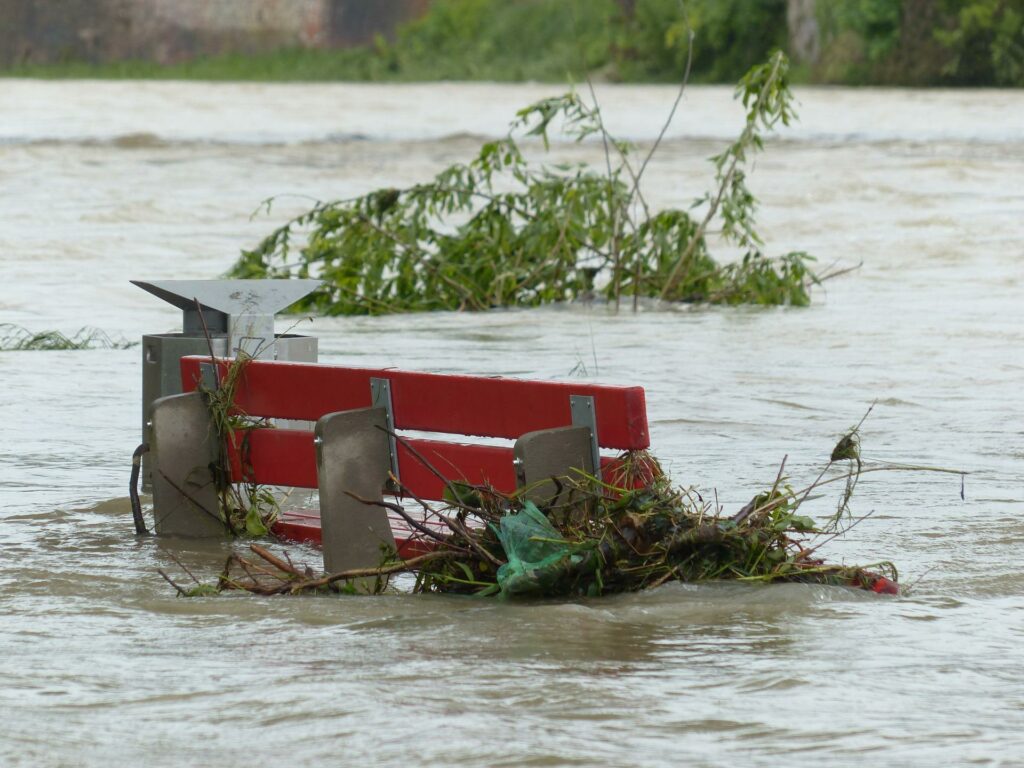
The impact of climate change on cities and rural regions is one of the current top issues in our society. After the drought years in 2018 and 2019 and the extreme floods in 2021, another extreme weather year is looming in 2022. Local water shortages or floods are reported from almost every European country. The transformation of urban areas into so-called sponge cities or sponge regions is increasingly being recommended as an effective means of making cities and regions more climate resilient.
Effective measures to counter the effects of extreme weather events
This involves taking various water management and urban planning measures to better deal with the two weather extremes of heavy rainfall and drought. For example, reducing the amount of sealed surfaces ensures infiltration of rainwater so that less flash flooding occurs during heavy rainfall and, at the same time, the soil can be used again as a water reservoir. Combined with soil drainage, additional trees and open water areas, the rain is again used in a targeted manner instead of allowing the water volumes to flow uncontrolled, e.g. into the sewage system. In this way, the rainwater is not only removed from possible flash floods, but also used specifically for evaporation and thus cooling on hot days. In addition, created storage areas can hold irrigation water for dry periods
This requires that water management and urban planning strive for close and supportive cooperation. Furthermore, the use of digital monitoring, analysis and control systems is seen as an effective way to manage the high degree of complexity.”
Prof. Günter Müller-Czygan
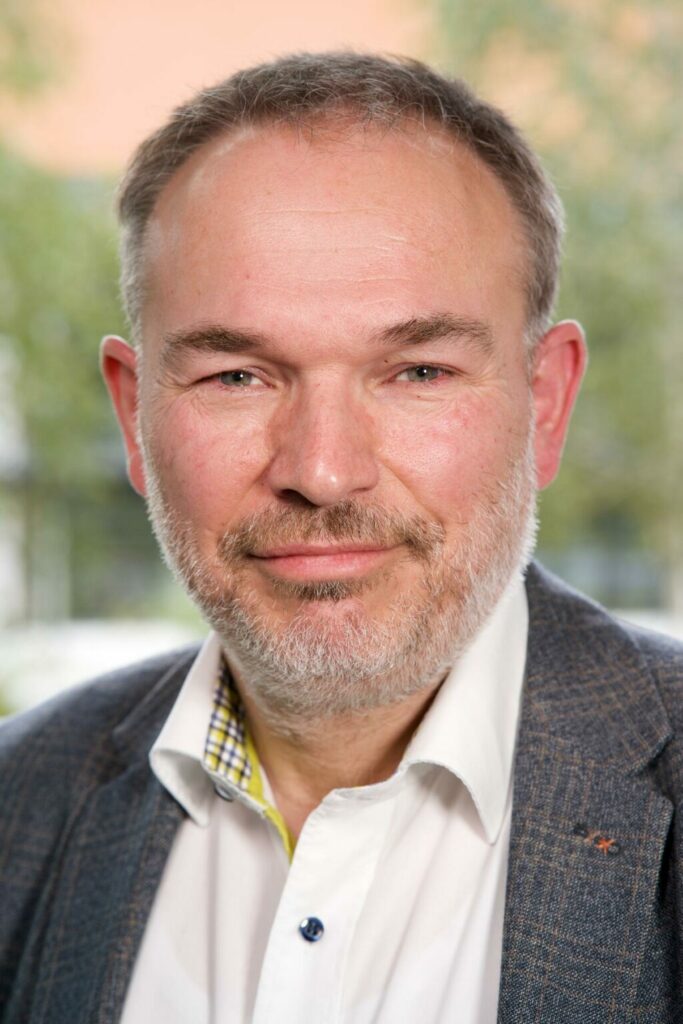
Implementation lags behind declarations of intent
It is not just a phenomenon in the sponge city topic environment that practical implementation is lagging behind. This can be seen in almost all current areas of society and the economy, whether it is the energy turnaround, the reduction of bureaucracy, digitization or the mobility turnaround
In none of these highly topical and future-influencing transformation processes is there the necessary speed of implementation. This is due, among other things, to the lack of complex knowledge among the players and the associated question of how new knowledge can be quickly and purposefully transferred from theory into practice and profitably integrated into everyday work.”
Prof. Günter Müller-Czygan
There is no shortage of continuing education courses with corresponding content. The transfer from seminars and workshops to everyday work is the biggest hurdle.
Continuing education often not very effective
The results of research into learning and transfer show some shocking findings: just one quarter of the participants surveyed confirmed that the courses were highly transferable, and two thirds missed the ability to integrate what they had learned into their day-to-day work. At the same time, clients would like to see training courses of shorter duration and with more content transfer. While elements to increase transferability have always been underrepresented in most continuing education programs, this trend counteracts the need to transfer the required knowledge quickly and effectively in view of the existing challenges. These findings are confirmed by the meta-study WaterExe4.0 on the state of digitalization in the water industry, which was conducted in 2020/2021 by researchers led by Prof. Manuela Wimmer and Prof. Günter Müller-Czygan at the iwe Institute for Water and Energy Management at Hof University of Applied Sciences.
New certificate course developed with a strong implementation focus
“A fast implementation of a new solution requires the clear visibility of the added value as well as the direct profitable integration into the daily work routine. Hardly any user is willing to invest additional time to try something new in view of the personal increase in tasks and complexity. Unless he is personally extremely motivated and interested in the matter at hand,” is how Prof. Müller-Czygan summarizes the study results. Against this background, the engineer and business psychologist and his team from the Water Infrastructure and Digitalization Research Group want to break new ground with the development of the certificate course “Sponge City – Urban Development in Times of Climate Change.” Funded by the Bavarian State Ministry of Science and the Arts as part of the funding action “REACT-EU – Professional Qualification – Knowledge Transfer from Universities to Companies”, this certificate training is being developed for the first time specifically on the basis of the findings of current learning and transfer research. The focus of the course, which is aimed at Bavarian companies, primarily SMEs (small and medium-sized enterprises), is to enable interested companies to find their place in the sponge city market. “On the one hand, the goal is to align the existing product and service portfolio with the sponge city requirements and to enable an entry into this market. On the other hand, after the course, companies should be able to identify new potential for products or services and find effective ways to implement them,” he said.
Novel structure and individual design
The novelty of this course is its two-part structure. At the beginning, there will be a general theory section that will be the same for all participants. Since the topic sponge city is very complex and many technical and achievement ranges of the enterprises are addressed, a practice and method part aligned to the individual needs and conversion desires of the individual enterprises follows to the theory part (before beginning of training course these needs and desires are inquired). This part is completed in group work and, if required, in individual work. Thus, each participant receives a high proportion of individualized training.
In order to maximize the effectiveness for each participant, an individual determination of the goals, competencies and the so-called transfer strength is carried out by the Hofer researchers before the start of the course. Extensive studies have shown that only about 20% of participants in continuing education have the personal prerequisites to transfer continuing education content into practice in a targeted manner and with sufficient stamina without outside help. On the other hand, currently existing competencies and those required to achieve the learning objectives are identified. In order to increase the proportion of training participants with a positive implementation record, course content and transfer strength as well as competence requirements must be coordinated. In addition, exercises are built into the course that lead to a higher transfer strength at the end of the course than at the beginning. This greatly increases the likelihood that many participants will also apply what they have learned in the medium and long term and continue to build up the necessary competencies.
After the theoretical basis has been laid and it is clear where the participants stand in terms of transfer strength and competencies, the analysis of the sponge city topics and identification of potential market segments and product/service ideas takes place. Since a high level of personal transfer strength alone is not sufficient to implement innovation and product/service ideas, the course participants also learn the novel methodology of the so-called “Innovation Race”, with the help of which they become familiar with all the important steps from the innovation or product/service idea through development, financing and marketing to sales in a structured and targeted manner. Since there is also a comparable transfer problem on the side of the predominantly municipal application side of sponge city solutions, the participants are finally instructed in the so-called “SOWIESO strategy”, with the help of which novel solutions can be adapted to the everyday work of the user in a targeted manner. After the participants had to deal with their own transfer strength in the course of the new course structure, it will not be difficult for them to recognize transfer obstacles on the user side and to minimize them with the help of the methods learned.
Participation free of charge for Bavarian companies
Participation is free of charge for Bavarian companies. The course is supported by the current research projects InSchuKA4.0 (Intelligent Sewer Network Control for Extreme Weather Events), SPORE (Sponge Region Upper Franconia – Dealing with Climate Change) and BodenRadar (Digital Soil Analysis in its Function as a Water Reservoir)
Even if the course itself does not represent a fast-track course in sponge city and thus actually contradicts the trend of shortened further training content, the learning content imparted at various levels will have a time-reducing effect. In the theory not into the possible depth one dives, but the necessary basic understanding of a “system sponge city” is obtained. In-depth knowledge can then be acquired much better online as needed. Since the practical exercises simultaneously target the levels of transfer strength, competence building and individual target orientation, a higher and faster implementation transfer and thus market success can be achieved.
First insight for interested companies
Interested companies have the opportunity to get a first insight into the course in a 90-minute taster session. From November 2022, the total of 5 course series will begin. Finally, interested participants in these courses have the opportunity to attend a supplementary course if they themselves want to pass on the knowledge they have learned in their company (“train-the-trainer”). A further development of the course for municipalities and cities is planned for 2023. Interested Bavarian municipal utilities as their own GmbH can already take part in these courses. The dates for the taster course are published on the project homepage(https://www.hof-university.de/forschung/institut-fuer-wasser-und-energiemanagement/aktuelle-forschungsprojekte/schwammstadt.html). From mid-August, the dates for the 5 course series will also be published. The number of participants is limited. Registrations and inquiries can already be submitted at schwammstadt@hof-university.de. Further contact details can be found on the project homepage.




